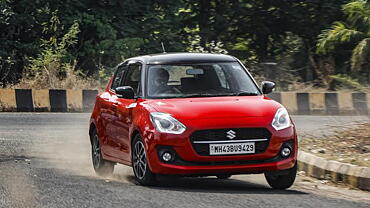Crisis in the Indian economy is taking its toll badly on the automobile sector, which seems to be on a rapid decline. For a long time now, car makers in India have been battling extremely low demand, which has resulted in a significant drop in sales. Till now, companies have been trying to counter this crisis with a number of strategies, such as introduction of new models, providing lucrative deals and offering heavy discounts. These ploys have worked only to a certain extent, which, in the big picture, can be considered as negligible. According to recent development, the impact of this slowdown is forcing auto makers to revise their investment plans for India. What makes this situation worse is the fact that this decision is being taken by big names in the industry like Maruti Suzuki, Mahindra & Mahindra and Volkswagen. Sources have claimed that due to low sales figures and the situation not likely to improve in the future, firms have decided to wait till things get better.
Mahindra & Mahindra, one of the leading vehicle manufacturers in India, as per reports, is planning to remove a portion of the investment budget it had set. Rumours suggest that the reported investment, somewhere around Rs. 10000 crore, will see a cut down due to the unfavourable market conditions. Pawan Goenka, the President of Mahindra & Mahindra's automotive division, confirmed this fact in a recent interview, where he spoke about the firm's future plans.
"While the investments for product development will not be affected by the slowdown, investments in (production) capacity might get deferred. The plans for new capacity addition, mainly through addition of a new plant, may be delayed by about a year," he was quoted as saying. Out of the Rs. 10000 crore planned investment, Mahindra & Mahindra has allocated around 75 per cent of the amount to capital expenditure. Commenting on the reduction, Goenka said, "Of this amount, about Rs. 1,000-1,200 crore may be delayed by around 12 months."
A recent report had suggested that Maruti Suzuki might put on hold its plans to expand production facility network. Due to lack of guaranteed expected sales, Maruti Suzuki has decided to put its initiatives on a hold for the time being. Chairman of Maruti Suzuki, R C Bhargava, ruled out the possibility of the new plant being commissioned in Gujarat in the next three years. "It is unlikely that we would be able to commission the Gujarat plant even by the end of 2015-16. The slowdown in the auto sector is very acute," he said in a recent interview. Sources claim that now the auto maker is revising its original plan and is working according to situation at hand, in a step-by-step manner. Industry experts feel that the sluggish demand seems to be the biggest deterrent in Maruti Suzuki's original plan, which was to produce over 2 lakh units from the plant in Gujarat, by 2015-2016.
Among foreign car makers, Volkswagen's plans of making investments for future expansion have been hit severely by the slowdown. The German car maker is relatively new in the Indian car market and is still working its way towards having a considerable share. Officials from the firm have said that this kind of scenario is not suitable for any firm to make an investment. In a recent media interaction, Arvind Saxena, Managing Director at Volkswagen Passenger Cars India, said, "The current situation does not give one expectations of brighter prospects in the future. It does add a little bit of uncertainty there. Also, there is no clear gameplan on how the economy will come back on track. Also, there is no clarity in terms of the economic policy."
Analysts have tried to contemplate the various factors that might be forcing auto makers to take such actions. One of the biggest reasons why firms are holding up investments is the rising cost of production. With the value of the rupee constantly falling, costs for auto makers are rising significantly. An automatic conclusion of the same would be a significant reduction in the return on investment. Even though firms are launching new vehicles in India, expanding production facilities and developing new projects does not seem to be a plausible idea. Sources claim that profit margins of auto makers have reduced drastically due to the heavy discounts offered by them to clear piled up inventories.




























